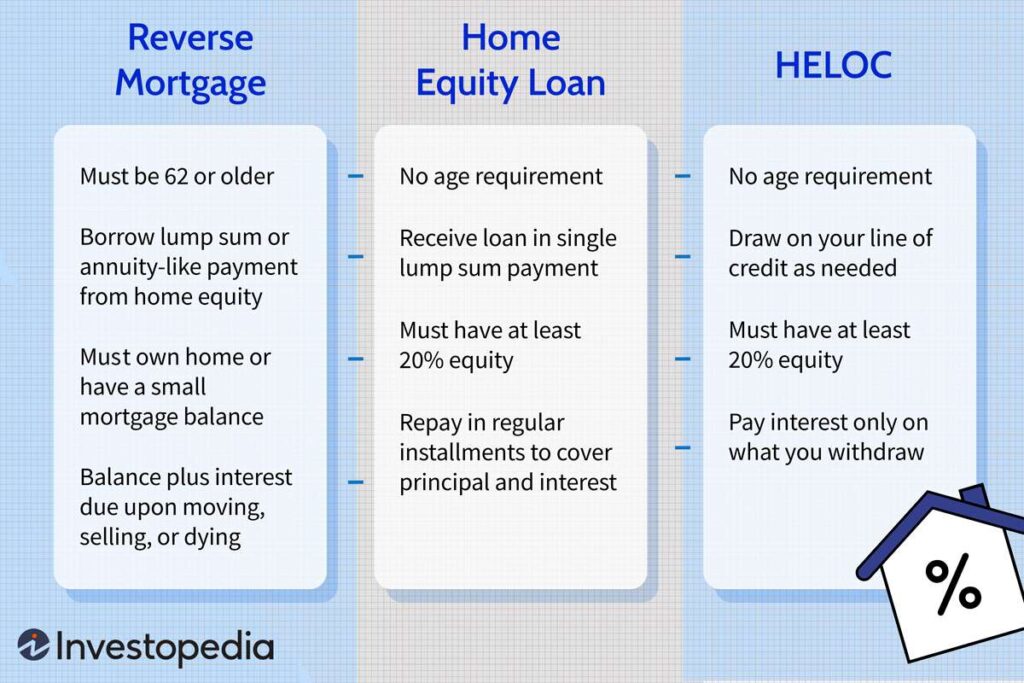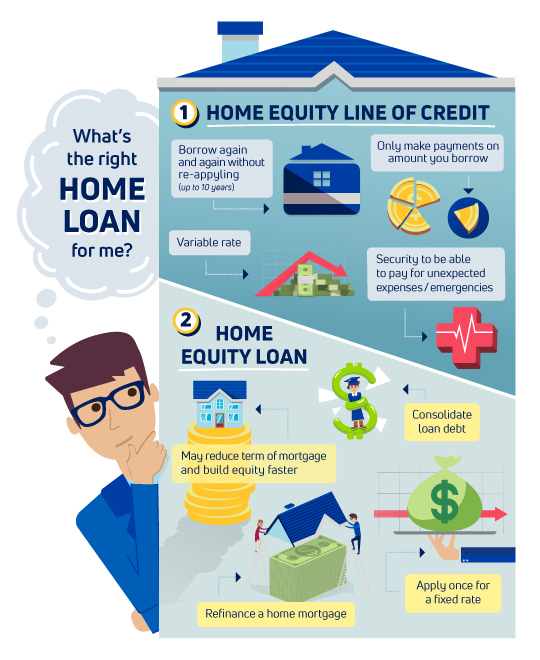Looking to refinance your home equity loan in Florida? Well, you’ve come to the right place! In this article, we’ll cover all the essential details you need to know to get started. From understanding the concept of refinancing to exploring key terms like interest rates and credit scores, we’ve got you covered. So, whether you’re looking to lower your monthly payments, consolidate debt, or cash out on your equity, this article will provide the information you need to make an informed decision. Get ready to dive into the world of Florida home equity loan refinancing!
How To Access Up To One Million Dollars Without Any Proof Of Income
What is a Florida Home Equity Loan Refinance?
Definition
A Florida home equity loan refinance is a financial transaction in which a homeowner in the state of Florida replaces their existing mortgage with a new loan that allows them to access the equity they have built up in their home. This type of refinance allows homeowners to borrow additional funds against the value of their home, using it as collateral.
Purpose
The purpose of a Florida home equity loan refinance is to provide homeowners with a convenient and cost-effective way to access the equity they have accumulated in their home. By refinancing their existing mortgage, homeowners can take advantage of lower interest rates, consolidate debt, or obtain a cash-out option to use for various financial needs.
How Does a Florida Home Equity Loan Refinance Work?
Process
The process of a Florida home equity loan refinance typically involves several steps. First, the homeowner evaluates their current loan and determines if refinancing is the right option for them. They then shop for rates from different lenders, comparing terms and conditions.
Once the homeowner has chosen a lender, they gather the required documents, which may include income verification, credit reports, and documentation of their property value. They then submit their application to the lender, who will review the information provided and determine if the homeowner qualifies for refinancing.
If the application is approved, the lender will enter the underwriting phase, during which they will verify the information provided and assess the risk of lending to the homeowner. If the underwriting process is successful, the lender will schedule a closing, at which point the loan will be closed, and the homeowner will receive the funds from the refinance.
Requirements
To qualify for a Florida home equity loan refinance, homeowners must meet certain requirements. These requirements may vary depending on the lender, but common criteria include a minimum credit score, a loan-to-value ratio within acceptable limits, and the ability to pay closing costs associated with the refinance.

How To Access Up To One Million Dollars Without Any Proof Of Income
Benefits of a Florida Home Equity Loan Refinance
Lower Interest Rates
One of the significant benefits of a Florida home equity loan refinance is the opportunity to secure a lower interest rate. If interest rates have decreased since the homeowner’s original mortgage was obtained, refinancing can allow them to take advantage of these lower rates. This can result in significant savings over the life of the loan.
Debt Consolidation
Another benefit of a Florida home equity loan refinance is the option to consolidate debt. By refinancing their existing mortgage and using the additional funds to pay off high-interest debt, homeowners can streamline their financial obligations and potentially save money on interest payments. This can be particularly beneficial for those with multiple sources of debt, such as credit card balances or personal loans.
Cash-Out Option
A Florida home equity loan refinance also offers homeowners the option to access the equity they have accumulated in their home in the form of a cash-out refinance. This means that in addition to refinancing their mortgage, homeowners can borrow extra funds that they can use for various financial needs, such as home improvements, education expenses, or investment opportunities. This can provide homeowners with a valuable source of additional funds without having to take out a separate loan.
Considerations Before Refinancing
Credit Score
Before pursuing a Florida home equity loan refinance, it is essential to consider your credit score. Lenders typically require a minimum credit score to qualify for refinancing, and a higher credit score can help secure more favorable loan terms, such as lower interest rates. If your credit score is lower than desired, it may be beneficial to work on improving it before applying for a refinance.
Loan-to-Value Ratio
The loan-to-value (LTV) ratio is another important consideration when refinancing a home equity loan in Florida. This ratio compares the amount of the loan to the appraised value of the property. Lenders typically have maximum LTV ratios, and if your LTV ratio is too high, you may not qualify for refinancing or may be subject to higher interest rates. It is essential to assess your LTV ratio before proceeding with a refinance.
Closing Costs
One aspect of refinancing that homeowners should carefully consider is the closing costs associated with the transaction. Closing costs can include fees such as appraisal fees, title search fees, and loan origination fees. These costs can vary depending on the lender and the value of the property. Before refinancing, it is crucial to factor in these costs and determine if the potential savings from the refinance outweigh the expenses.

How To Access Up To One Million Dollars Without Any Proof Of Income
Steps to Refinance a Home Equity Loan in Florida
Evaluate Your Current Loan
The first step in refinancing a home equity loan in Florida is to evaluate your current loan. Determine the interest rate, loan term, and monthly payments associated with your existing mortgage. Consider if refinancing would offer better terms and benefits based on your financial goals.
Shop for Rates
Once you have evaluated your current loan, it’s time to shop for rates from different lenders. Compare the interest rates, terms, and closing costs offered by various lenders to find the best option for your needs. It can be helpful to obtain multiple quotes and carefully consider the loan terms before making a decision.
Gather Required Documents
To apply for a Florida home equity loan refinance, you will need to gather all the required documents. This may include recent pay stubs, bank statements, tax returns, and documentation related to your property, such as a recent appraisal. Having these documents readily available can help streamline the application process.
Submit Application
Once you have chosen a lender and gathered the necessary documents, it’s time to submit your application. Provide all the required information accurately and completely to ensure a smooth application process. Be prepared to provide additional documentation or answer any questions the lender may have during the review process.
Underwriting and Approval
After submitting your application, the lender will enter the underwriting phase. During this process, the lender will review your application, verify the information provided, and assess your creditworthiness and risk profile. If your application meets the lender’s criteria, it will be approved, and you will move on to the closing phase.
Closing the Loan
The closing phase is the final step in refinancing your home equity loan. At this stage, you will review and sign the loan agreement and any other necessary documentation. The lender will disburse the funds from the refinance, and your original mortgage will be paid off. It is essential to carefully review all the terms and conditions of the new loan before signing to ensure you understand the terms and obligations.
Alternatives to Florida Home Equity Loan Refinance
Personal Loan
If you are not eligible for a Florida home equity loan refinance or prefer not to use your home as collateral, a personal loan may be an alternative. Personal loans are unsecured loans that can be used for a variety of purposes, including debt consolidation, home improvements, or unexpected expenses. These loans typically have fixed interest rates and terms.
Credit Card Balance Transfer
For those looking to consolidate credit card debt, a balance transfer to a credit card with a lower interest rate may be a viable option. Some credit card companies offer introductory 0% APR promotions, allowing you to transfer your balances and save on interest charges. However, it is essential to consider any balance transfer fees and the duration of the promotional period before making a decision.
HELOC
A home equity line of credit (HELOC) is a revolving line of credit that allows homeowners to borrow against the equity in their home. Similar to a home equity loan refinance, a HELOC provides access to funds for various purposes. However, unlike a refinance, a HELOC does not replace the existing mortgage but instead offers an additional line of credit that can be used as needed.

How To Access Up To One Million Dollars Without Any Proof Of Income
Conclusion
A Florida home equity loan refinance can be a valuable financial tool for homeowners seeking to access their home’s equity. Whether the goal is to lower interest rates, consolidate debt, or obtain funds for personal use, a refinance can provide a range of benefits. However, it is crucial to carefully consider the requirements, costs, and alternatives before proceeding with a refinance. By weighing the pros and cons and conducting thorough research, homeowners can make an informed decision that aligns with their financial goals and needs.
How To Access Up To One Million Dollars Without Any Proof Of Income
